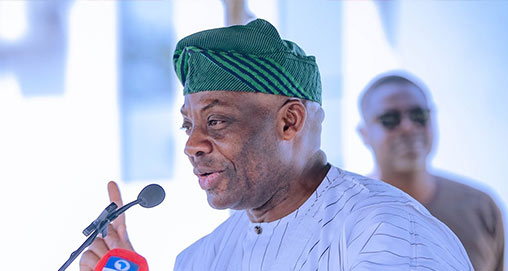BREAKING: FG Integrates AI In Curriculum Delivery

As part of ongoing reforms in the education sector, the minister of education, Dr Maruf Alausa, has announced the integration of Artificial Intelligence (AI) in curriculum delivery, stressing that his ministry is committed to delivering inclusive, future-ready education.
The minister also announced Nigeria’s target of integrating 10 million out-of-school children by 2027 as an offshoot of the federal government’s education reform initiatives, which include the Hope for Quality Basic Education programme (Hope-Ed), backed by the World Bank and GPE, and the Nigeria Education Sector Renewal Initiative (NESRI).
He made the announcements at the just-concluded International Conference on Smart Education (ICSE) 2025, held at the Universal Basic Education, UBEC Digital Resource Centre, Abuja.
The conference started with a strong reaffirmation of Nigeria’s commitment to using digital technology to transform basic education across the country.
The high-level event, convened by UBEC in collaboration with the Korean International Co-operation Agency (KOICA), brought together policymakers, development partners, school administrators, teachers, and digital education experts across Nigeria and beyond.
In his address, the minister of education, Alausa underscored the alignment of ICSE 2025 with President Bola Ahmed Tinubu’s Renewed Hope Agenda, emphasising the centrality of human capital development.
Highlighting Nigeria’s youthful population—44% under age 15—the minister called for an urgent re-engineering of the education system to convert this demographic strength into a digital dividend. “We must equip our children with 21st-century skills to avoid a demographic disaster,” he stated.
In his goodwill remark, the Ambassador of the Republic of Korea to Nigeria, Mr Kim Pankyu, praised the strong collaboration between Korea and Nigeria in advancing smart education.
He commended UBEC’s Smart Schools Programme and reaffirmed KOICA’s commitment to supporting Nigeria’s digital transformation in basic education. The Ambassador emphasised that Korea’s experience shows how digital education can drive social inclusion and economic growth, and expressed optimism about Nigeria’s potential to replicate similar success.
Earlier, in her welcome remarks, UBEC executive secretary Aisha Garba noted that the conference was a strong reminder that innovation in education was no longer optional as it was imperative for our progress, inclusion, and global competitiveness.
She stressed that this conference’s objectives —fostering knowledge-sharing, addressing challenges in tech-based education, promoting scholarship, and accelerating development—aligned deeply with UBEC’s mandate to ensure equitable, inclusive, and quality basic education for every Nigerian child.
“In a world increasingly defined by technology, fulfilling this mandate demands that we rethink education delivery, reimagine learning environments, and embrace innovation to bridge learning gaps and unlock the potential of every learner.”
Delegates from several African countries attended the conference, including Benin, Cameroon, Conakry, Congo, Ivory Coast, Kenya, Sao Tome, Sierra Leone, and Togo.
